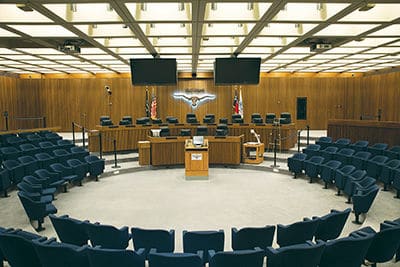Fort Worth needs more money. Don’t worry, the city isn’t going broke, but city leaders have decided more needs to be done to encourage economic development.
The city council authorized a strategic plan Tuesday that includes funding of an Economic Development Incentive Fund. Now it is up to City Manager David Cooke and his staff to develop strategies and policies for its implementation.
The plan calls for dedicated funding to come from expiring Tax Increment Financing (TIF) districts – a source that city officials say could potentially raise as much as $18 million. TIFs 3, 4 and 8 are the ones that will be expiring over the next few years.
TIF 3 is in the downtown area and will expire on Dec. 31, 2025. TIF 4 is the southside/medical district and expires on Dec. 31 of this year, and TIF 8 is the Lancaster area and expires on Dec. 31 of 2024.
Fort Worth budgeted $2 million for “deal closings” in economic development for this fiscal year. And while the city also has almost $6 million more to help from some sold property, that number is still dwarfed by the likes of $27 million dedicated in nearby Frisco, along with nearly $18 million in McKinney, $17 million in Arlington and $11 million in Allen.
Fort Worth Economic Development Director Robert Sturns called the authorization an important step forward in strengthening the city’s economic development efforts.
“We are in a very competitive landscape with the DFW Metroplex and across the country,” Sturns said. “This will provide the resources necessary to accelerate our recruitment efforts, advance our community development efforts and allow us to do some innovative things in the entrepreneurship space.”
According to the Dallas Regional Chamber of Commerce, over 20 new business headquarters came to the Fort Worth-Dallas area last year, but none landed inside the city of Fort Worth. Meanwhile, statistics from the Fort Worth Chamber of Commerce show that interest in Fort Worth from companies has almost doubled since 2019 to over 150 companies last year – but there just wasn’t enough money for incentive to close the deal.
In January 2017, the city hired TIP Strategies, Inc., with offices in Austin and Seattle, to devise an economic development strategic plan. That plan was accepted in December of 2017.
However, due largely to the onset of the COVID-19 pandemic, adjustments had to be made to reflect the resulting business outlook and adjust to the new environment. Hence, the need to get more creative.
A copy of the plan is available on the city’s website.






